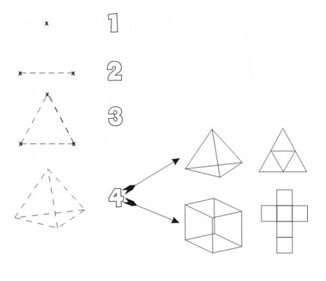The Pythagoreans or Italiotes
We will now move from the coasts of Asia Minor to southern Italy. Many inhabitants of the Ionic colonies had to migrate there due to the Persian invasion.
There, as well as in the island of Sicily (see map), they founded several Greek cities. Their flourishing allowed the ulterior development of philosophical thought.
Pythagoras of Samos (500-496 BC)
The ‘Pythagoreans’ constituted some sort of mystical sect. They lived in something that resembled a 'monastery' in the city of Crotona or Crotone (see map).
Their leader was Pythagoras of Samos, famous not only for his mathematical discoveries (the knowledge of the Pythagoras Theorem), but also for having been the first person in using the term of ‘philosopher’ to define himself, in the sense of ‘fond of wisdom’.
The thought os the Pythagoreans can be summarized as follows:
- Philosophy is a means to purify the spirit.
- The immortality of the soul
- Transmigration of the souls (‘reincarnation’)
- The cycle of things
- Relationship between the beings
As you can see, the pythagorean way of thinking is extremely related to the religion of that time (especially to 'Orphism'), and even to the religion of more ancient eastern civilizations.
- The soul, the principle of movement
An idea we saw in Thales of Miletus and which refers without a doubt to the intrinsic power of the chaotic origin principle.
- The living universe: BREATHING (life) - EMPTINESS (death)
However, the most important and original points of the pythagorean thought are found in their ‘theory of numbers‘, or their attempt (the first in history) to interpret reality in mathematical terms.
- NUMBERS, the essence of things:
- Duality: EVEN (ILLIMITED) – ODD (LIMITED)
1 + 1 = 2
1 + 2 = 3
1 + 3 = 4
- Mutability of numbers and immutability of 'the unique'. Tendency to opposite points
‘Tetractys’:


The ‘Tetractys’, sacred number to which all other numbers are based upon, constituted the secret to be able to interpret everything in reality for the Pythagoreans.
However, it did not constitute a mathematical interpretation as modern-day mathematics. These numbers, for the Pythagoreans, were a symbol of things (they were a religious-philosophical sect), and their numerical interpretation of the universe was based upon this belief.